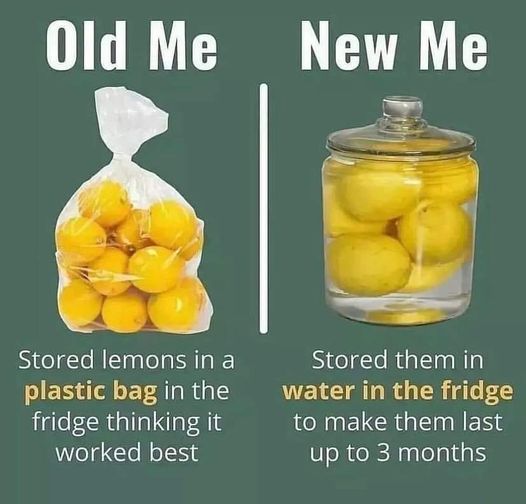- This topic has 7 replies, 1 voice, and was last updated 1 year, 2 months ago by
admin.
-
AuthorPosts
-
-
26 February 2023 at 4:03 pm #284
admin
KeymasterFinancial
Preparing for a recession from financial specialists:
Focus on budgeting and building an emergency fund.
Prioritize paying off high-interest debt.
Update your résumé
Get creative about saving.
If you have savings to invest, be savvy about it.Here are some steps you can take to recession-proof your finances.
Take stock of your financial situation. Many people find the idea of making a budget scary, especially if it might also mean some lifestyle changes.
Prioritize your emergency fund.
Pay down high interest debt.Your money
cash can be a good investment in the short term, since many recessions often don’t last too long. Cash gives you a lot of options
To register please text username @ password to me at 0274501899 or email admin@spirit.org.nz.
-
28 February 2023 at 9:38 am #287
admin
KeymasterWorking
Take steps to recession-proof your career.
To register please text username @ password to me at 0274501899 or email admin@spirit.org.nz.
-
28 February 2023 at 9:41 am #289
admin
KeymasterVegetables
I find if you wrap in handy towel then in a plastic bag, veg keep for weeks. Cabbage,cauliflower, zucchini, carrots . The handy towel soaks up moisture so veg don’t start rotting or going mouldy. What are your tips?
To register please text username @ password to me at 0274501899 or email admin@spirit.org.nz.
-
28 February 2023 at 9:41 am #290
admin
KeymasterWhat does recession mean for New Zealand?
A recession is a significant contraction in a country’s economic activity, usually over a period of several months. It differs from a depression, which tends to last longer – often years – and have a much more significant economic impact.
Whether its a recession or a depression, this topic covers both.
To register please text username @ password to me at 0274501899 or email admin@spirit.org.nz.
-
1 March 2023 at 11:05 am #301
admin
KeymasterFruit

To register please text username @ password to me at 0274501899 or email admin@spirit.org.nz.
-
27 May 2023 at 7:43 pm #390
admin
KeymasterQ: What was the cause of the last Great Recession?
A: The last major economic downturn that is commonly referred to as the Great Depression occurred in the early 1930s. It was primarily caused by a combination of factors, both domestic and international, which led to a severe contraction of the global economy.
Some key factors that contributed to the Great Depression include:
Stock Market Crash of 1929: The Wall Street Crash, also known as Black Tuesday, occurred on October 29, 1929. It was a significant stock market crash that marked the start of the Great Depression. The crash was triggered by widespread speculation, excessive borrowing, and overvaluation of stocks, which eventually led to a market collapse.
Overproduction and Underconsumption: In the 1920s, there was a period of rapid industrialization and increased productivity. However, the wages of workers did not rise proportionally, leading to a significant disparity in income distribution. As a result, there was a gap between the production capacity of industries and the purchasing power of consumers, leading to overproduction and underconsumption.
Global Economic Factors: The Great Depression was not limited to the United States but had worldwide repercussions. The global economy was interconnected through trade and finance, and when the U.S. economy suffered a severe downturn, it caused a ripple effect throughout the world. Factors such as international debt, protectionist trade policies, and the collapse of international trade exacerbated the economic crisis.
Banking Crisis: The collapse of numerous banks during the Great Depression worsened the situation. Many banks failed due to risky lending practices, insufficient regulation, and the loss of public confidence in the financial system. This led to bank runs and a severe shortage of credit, which further deepened the economic contraction.
Government Policy Failures: The response of governments to the economic crisis varied, but there were instances where policy mistakes exacerbated the downturn. Measures such as raising interest rates, imposing protectionist trade policies, and adhering to the gold standard limited the effectiveness of monetary and fiscal policies in stimulating the economy.
It’s important to note that the causes and complexities of the Great Depression are the subject of ongoing economic debate, and different economists may emphasize different factors. The effects of the Great Depression were profound, leading to widespread unemployment, poverty, and a reevaluation of economic theories and policies that shaped the following decades.
To register please text username @ password to me at 0274501899 or email admin@spirit.org.nz.
-
27 May 2023 at 7:54 pm #391
admin
KeymasterQ: How tough was the great depression on families?
A:
The Great Depression was an incredibly challenging and distressing time for families. The economic collapse had a profound impact on households affected by the global downturn. Here are some ways in which families were affected:Unemployment and Poverty: Unemployment rates skyrocketed during the Great Depression. Many breadwinners lost their jobs, leaving families without a source of income. This led to widespread poverty, with families struggling to meet basic needs such as food, shelter, and clothing. Unemployment often meant that families were unable to pay rent or mortgages, resulting in homelessness or foreclosure.
Lack of Basic Necessities: Families faced severe hardships in accessing basic necessities. Food scarcity was a significant issue, and soup kitchens and breadlines became common as people sought meals. Families often had to rely on charity or government relief programs for sustenance. Access to healthcare and education also suffered as families struggled to afford medical care or keep children in school.
Disruption of Family Life: The economic strain took a toll on family dynamics. Unemployment and financial instability created high levels of stress and anxiety within households. Men, traditionally viewed as the primary breadwinners, faced a blow to their sense of self-worth and masculinity due to their inability to provide for their families. Marriages and relationships were strained as families grappled with financial difficulties and uncertainty about the future.
Impact on Children: Children were particularly vulnerable during the Great Depression. Many families could not afford to provide adequate nutrition, clothing, or healthcare for their children. The lack of resources and educational opportunities hindered their development and future prospects. Children often had to drop out of school to work and contribute to their family’s income, depriving them of an education.
Psychological Toll: The Great Depression had a profound psychological impact on individuals and families. The constant worry, fear, and uncertainty of the economic situation took a toll on mental health. Depression, anxiety, and a sense of hopelessness were prevalent among those affected. Suicides and instances of domestic violence increased as families struggled to cope with the immense stress.
It’s essential to recognize that experiences varied depending on factors such as location, socio-economic status, and community support systems. Nevertheless, the Great Depression brought significant hardship to families, leaving a lasting impact on the lives of individuals and shaping social and economic policies in the years that followed.
To register please text username @ password to me at 0274501899 or email admin@spirit.org.nz.
-
27 May 2023 at 8:04 pm #392
admin
KeymasterQ: What are the main ways people got through the last great depression if they could not find a regular job?
A:
During the Great Depression, individuals and families had to find ways to survive despite the scarcity of jobs and the economic hardships they faced. Here are some of the main ways people coped during that time:Unemployment Relief Programs: Ggovernments implemented various relief programs to provide assistance to those who were unemployed.
Self-Sufficiency: Many people turned to self-sufficiency as a means of survival. Families grew their own food by cultivating gardens or keeping backyard livestock. They preserved food through canning and drying to ensure they had enough to eat. People also shared resources and formed cooperative communities to support each other.
Migration: Some individuals and families left their homes in search of better opportunities. They moved to regions where employment prospects were relatively better, such as cities with emerging industries or agricultural areas where there was a demand for labor. However, migration was not always successful, and many faced hardship and competition for limited job opportunities.
Barter and Local Economies: In the absence of cash and widespread unemployment, barter systems and local economies thrived. People exchanged goods and services directly without using money. Bartering allowed individuals to acquire essential items or services they needed by trading goods they had or skills they possessed.
Informal Work and Odd Jobs: People resorted to taking on informal work and odd jobs to earn whatever income they could. This could include tasks such as babysitting, yard work, house cleaning, or day labor. Some individuals engaged in small-scale entrepreneurship, such as selling homemade crafts or offering services like sewing or repairing.
Community Support: Communities came together to support each other during the Great Depression. Mutual aid societies, churches, and local charities provided assistance in the form of food, clothing, and shelter. Community-led efforts, such as soup kitchens and breadlines, offered free meals to those in need.
Resourcefulness and Frugality: People became extremely resourceful and practiced frugality to make ends meet. They reused and repaired items instead of buying new ones, repurposed materials, and made do with what they had. Recycling and reusing became crucial to stretching limited resources.
It’s important to note that these survival strategies were not always enough, and many families continued to struggle throughout the Great Depression. The economic recovery eventually came with the onset of World War II, as wartime industries stimulated employment and the economy.
To register please text username @ password to me at 0274501899 or email admin@spirit.org.nz.
-
-
AuthorPosts
- You must be logged in to reply to this topic.

